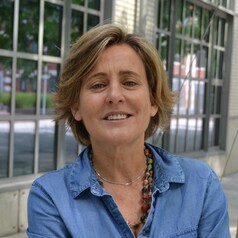
Cristina Churruca Muguruza
Investigadora senior del Instituto de Derechos Humanos, Universidad de Deusto
Profesora asociada e investigadora senior en el Instituto de Derechos Humanos de la Universidad de Deusto, es Coordinadora del Máster Conjunto Erasmus Mundus en Acción Humanitaria Internacional (NOHA+) desde 2007 y Directora del Máster de la Universidad de Deusto de 2007-2023. Anteriormente desarrolló su carrera investigadora en la Universidad del País Vasco, UPV-EHU, y en la Universidad de Bochum en Alemania.
Sus principales áreas de investigación son la seguridad humana, en particular la protección de las personas desplazadas forzadas en contextos fronterizos y las tendencias y desafíos actuales en la acción humanitaria y la consolidación de la paz y la política de la Unión Europea en estos campos.
Less ![]()
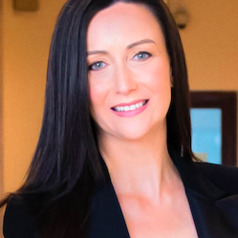
Cristina R. Reschke
Lecturer in the School of Pharmacy and Biomolecular Sciences & Funded Investigator in the FutureNeuro Research Centre, RCSI University of Medicine and Health Sciences
Dr. Cristina R. Reschke is a Lecturer in the School of Pharmacy and Biomolecular Sciences and Funded Investigator within FutureNeuro Research Centre at RCSI University of Medicine and Health Sciences, Ireland. Her research focus on uncovering cellular and molecular mechanisms underlying epilepsy to allow for the development of novel and precise therapeutic approaches for disease-modification. She is particularly interested in understanding how the circadian rhythm disruption impacts the brain and epilepsy development. Her work has been recognized to date with over 10 early-career awards, including the Harinarayan Young Neuroscientist Award and Grass Young Investigator Award, respectively endowed by the International League Against Epilepsy and the American Epilepsy Society.
Less ![]()
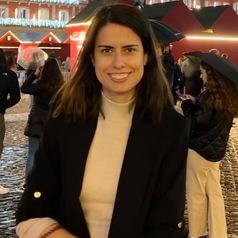
Cristina Roldán Fidalgo
Doctora en Musicología, Universidad de La Rioja
Doctora en Musicología por la Universidad Autónoma de Madrid con Premio extraordinario de Doctorado. Graduada en Historia y Ciencias de la Música (UAM), Máster en Música y Artes Escénicas (UAM), Máster en Formación del Profesorado de Educación Secundaria Obligatoria y Bachillerato (UNED). Es autora de diversos artículos científicos y ha participado en numerosos congresos nacionales e internacionales. Ha sido profesora en la Universidad Autónoma de Madrid, la Universidad Internacional de Valencia (VIU), la Universidad Alfonso X El Sabio (UAX) y la Universidad de La Rioja (UR). En la actualidad es investigadora postdoctoral Juan de la Cierva en la Universidad de La Rioja.
Less ![]()
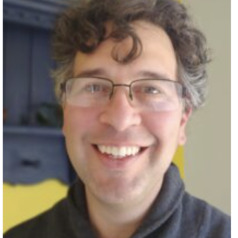
Cristoforo Silvestri
Assistant Professor, Faculty of Medicine, Université Laval
Cristoforo Silvestri received a Bachelor’s degree in Genetics from York University in Toronto in 1998, and pursued graduate studies at the Institute of Medical Sciences of the University of Toronto where he received his PhD in 2009. From 2009 to 2014, he completed a postdoctoral fellowship with Dr. Vincenzo Di Marzo at the Institute of Biomolecular Chemistry of the National Research Council in Italy on endocannabinoids (and related compounds) and phytocannabinoids in obesity and associated metabolic disorders.
Since 2017, Dr. Silvestri has been an Assistant Professor in the Faculty of Medicine at Université Laval. Furthermore, he holds the Sentinel North partnership research chair on the gut microbiome-endocannabinoid system as an integrator of extreme environmental influences on bioenergetics.
Dr. Silvestri has extensive experience in collaborating with world-renowned pharmaceutical industries in the field of intestinal microbiota and endocannabinoids. He has also been involved in a number of collaborations with institutes associated with Université Laval (i.e. INAF and CERVO) on projects ranging from neuronal development and behaviour to the metabolic benefits of probiotics.
His laboratory is located at the Quebec Heart and Lung Institute and focuses on the molecular and cellular actions of the endocannabinoid system on metabolism.
Less ![]()
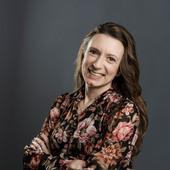
Cristy Brooks
Associate Lecturer in Interprofessional Health Sciences, Western Sydney University
Less ![]()
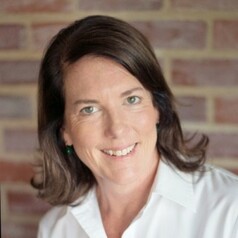
Cristy Leask
Lecturer, Graduate School of Business and Leadership, University of KwaZulu-Natal
Cristy Leask is a transformation executive with extensive experience of creating purposeful strategies and delivering results that accelerate business growth. She is passionate about enabling leaders and executive teams to get to the future faster by co-creating the fit-for-purpose solutions of our time. Navigating the current world requires leaders to become authentic, shift mindsets, redefine models and place purpose at its heart.
Less ![]()
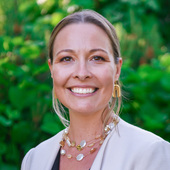
Crystal Cederna
Clinical Psychologist & Associate Professor of Public Health, Michigan State University
Less ![]()
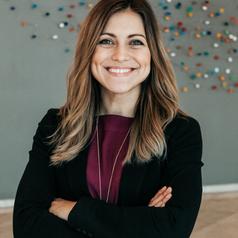
Crystal Garcia
Assistant Professor of Educational Administration, University of Nebraska-Lincoln
Crystal E. Garcia, Ph.D., is an Assistant Professor of Educational Administration at the University of Nebraska-Lincoln. Her research examines the mechanisms by which minoritized college students experience campus environments. Dr. Garcia is Associate Editor of the Journal of Sorority and Fraternity Life Research and Practice and a member of the editorial boards for the Journal of College Student Development and the College Student Affairs Journal. Prior to her role at Nebraska, Dr. Garcia served as an Assistant Professor of Administration of Higher Education at Auburn University.
She earned her Ph.D. in Educational Studies specializing in Educational Leadership and Higher Education at the University of Nebraska-Lincoln. She also completed an M.S. in Higher Education Administration and a B.S. in Speech Communications at Texas A&M University-Commerce.
Less ![]()
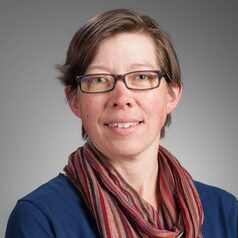
Crystal A. Kolden
Assistant Professor and Pyrogeographer, University of Idaho
My research is on the integration and understanding of the human and ecological aspects of wildfire under climate change, particularly understanding what determines how severely a wildfire burns. I try to understand how we can develop more sustainable, science-based approaches to wildfire management, and how we communicate those approaches to gain acceptance.
Less ![]()
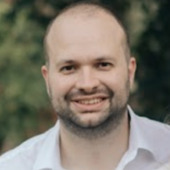
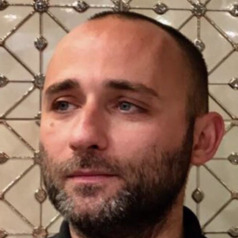
Cüneyt Çakırlar
Associate Professor in Film and Visual Culture, Nottingham Trent University
My current research practice focuses on gender/sexuality studies, global visual cultures, and transnational horror studies. I have taught on queer arts and film theory at University College London (UK), Boğaziçi University (Turkey), Istanbul Bilgi University (Turkey), and Koç University. My articles appeared in various peer-reviewed academic journals including Critical Arts, Cineaction, New Review of Film and Television Studies, [in]Transition, and Screen. I co-edited a volume about cultures of sexual dissidence in contemporary Turkey, namely Cinsellik Muamması: Türkiye’de Queer Kültür ve Muhalefet /The Sexuality Conundrum: Queer Culture and Dissidence in Turkey (Metis, 2012), co-translated Judith Butler’s Bodies That Matter (1993) into Turkish (Pinhan Press, 2014), and co-authored Mustang: Translating Willful Youth (Routledge, 2023). Having authored exhibition catalogues for internationally acclaimed LGBTQ artists (e.g. Soufiane Ababri and Erinç Seymen), I have also worked with various arts institutions in Turkey (Arter, The PILL, and Zilberman Gallery), USA (Paul Kasmin Gallery), UK (Nottingham Contemporary), and Germany. I am the principal investigator for the project Transnational Horror, Folklore, and Cultural Politics, funded by the British Academy Small Research Grants scheme.
Less ![]()
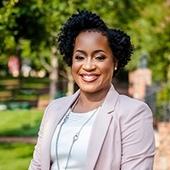
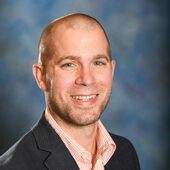
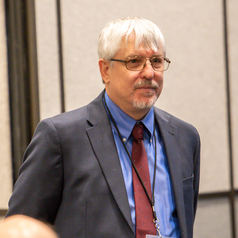
Curtis Hutt
Executive Director, Leonard and Shirley Goldstein Center for Human Rights, University of Nebraska Omaha
I am an Associate Professor of Religious Studies.
Less ![]()
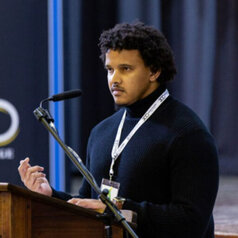
Curwyn Mapaling
Senior Lecturer, University of Johannesburg
Curwyn Mapaling (PhD), a senior lecturer/clinical psychologist at the University of Johannesburg, integrates psychological principles into education. His research, focusing on well-being in higher education, combines theory with practice. Honoured as a Mandela Rhodes Scholar and Abe Bailey Fellow, he received the 2022 Alumni Rising Star Award from Nelson Mandela University.
Less ![]()
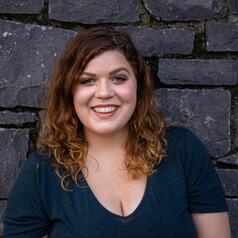
Cydney Thompson
PhD Candidate, School of History, Trinity College Dublin
Cydney Thompson is a final year PhD student at Trinity College Dublin in the School of History, doing interdisciplinary research with the Digital Humanities. She is a 2018 graduate of the TCD MPhil in Public History and Cultural Heritage, and has a decade of experience working with cultural heritage institutions around the world, including the Chester Beatty, the National Gallery of Ireland, and Trinity College Libraries. She is currently the volunteer archivist for the Dublin Lesbian Line. She specialises in digitisation, digital archiving, and digital exhibition design. Her research examines use and reuse of digitised cultural heritage materials, like the Hesitant Bride, by examining classical art memes and their development and function on social media. Her research is funded by Trinity College Dublin, and she is an early career researcher in the Trinity Long Room Hub, an interdisciplinary research office.
Less ![]()

Cyma Hibri
PhD, University of Sydney
Cyma Hibri is a second-year PhD student living and working on Gadigal land. Their research is on the influences of humanitarian ideologies and practices in documentaries made in solidarity with the Palestinian struggle.
Less ![]()
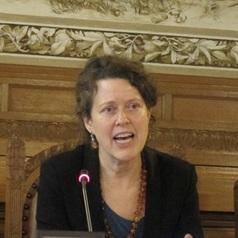
Cymie Payne
Associate Professor of Human Ecology and Law, Rutgers University
Cymie R. Payne is an Associate Professor in the Department of Human Ecology and the Law School at Rutgers University.
She has represented the interests of the international community in the marine environment as legal counsel before the International Tribunal for the Law of the Sea in Hamburg, on behalf of the International Union for Conservation of Nature (IUCN) and has provided expert advice before the International Court of Justice and other international courts. She previously practiced natural resource and environmental law with the United Nations, the U.S. Department of the Interior and the law firm of Goodwin, Procter. For six years, she participated in landmark decisions on the legal responsibility of aggressor states for the restoration and remediation of damage to the environment from armed conflict as counsel to the United Nations Compensation Commission in Geneva, Switzerland. As Director of the Global Commons Project at University of California Berkeley’s Center for Law, Energy and the Environment, she focused on the linkage of state and international climate policy, particularly with respect to emissions trading systems; conflicts of state law with international trade; and regulating risks of new technologies such as carbon sequestration, where she was also a lecturer in residence on international courts and climate change law.
She has served on the Program Committee of the American Society for International Law and the International Law Association Committee on Sustainable Natural Resource Management for Development. She currently serves at the Chair of the Ocean Law Specialist Group of the World Commission on Environmental Law of the International Union for Conservation of Nature. She is a Fellow of the American College of Environmental Lawyers. She holds a Master’s degree from The Fletcher School of Law and Diplomacy and a Juris Doctor from the University of California, Berkeley.
Less ![]()
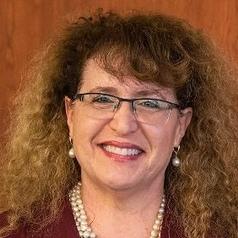
Cynthia Alkon
Professor of Law, Texas A&M University
Education
LL.M. in Dispute Resolution, University of Missouri-Columbia School of Law
J.D., U.C. Hastings College of Law
Hastings International and Comparative Law Review, Associate Articles Editor and Staff Member
B.A. in International Relations, San Francisco State University, magna cum laude
Expertise
Dispute resolution, including negotiation
Plea bargaining
Specialty courts: drug courts, veteran’s courts, mental health courts, etc.
Criminal procedure
Comparative criminal procedure
Rule of law development
Less ![]()
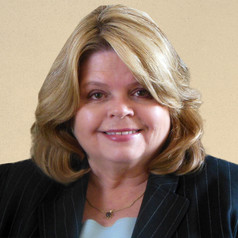
Cynthia Firey Eakin
Dr. Cynthia Eakin is an Associate Professor of Accounting. She currently serves as the Associate Dean for Academic Programs at the Eberhardt School of Business. She also is the school's Learning Assessment Coordinator.
Dr. Eakin earned a Ph.D. in accounting as well as a Master of Accounting degree with special emphasis in taxation from The Florida State University in 1993. She has over 20 years of teaching experience in all areas of accounting and taxation at both the graduate and undergraduate level. She was an assistant professor at the University of Hawaii's Manoa campus for four years before coming to the Eberhardt School. She has published research in the areas of earnings management, disclosure ethics, and insider trading.
Less ![]()
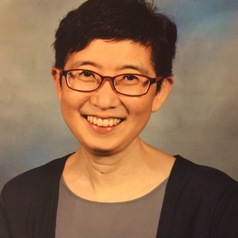
Cynthia Leung
Adjunct Professor, Victoria University
Dr Cynthia Leung is an educational psychologist. She is currently Adjunct Professor, Mitchell Institute, Victoria University, Honorary Professor, Department of Paediatrics and Adolescent Medicine, The University of Hong Kong and Honorary Professor, Department of Applied Social Sciences, The Hong Kong Polytechnic University. She was formerly Professor and Psychology Panel Chair at the Department of Applied Social Sciences, The Hong Kong Polytechnic University, and the program leader of the Master of Educational and Child Psychology program in The Hong Kong Polytechnic University. She was awarded the Medal of Honour by the Hong Kong Government in July 2019 in recognition of her contribution to special education. Dr Leung’s research includes parenting education, test development, program evaluation, cross-cultural psychology, migrant adjustment, child and adolescent well-being, and she has published extensively in these areas.
Less ![]()
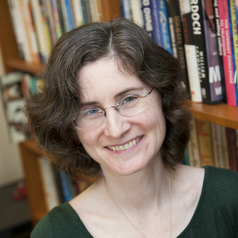
Cynthia Meyers
Cynthia Meyers studies the advertising industry, past, present and future, and its role in the development of radio/TV and digital media. She also studies the television and radio industry, past, present, and future, and shifting business models.
Less ![]()

Cynthia (Xinzhu) Li
PhD candidate studying menopause and sleep, University of Sydney
PhD candidate at the University of Sydney's School of Health Science. Conducting research about menopause and sleep.
Less ![]()
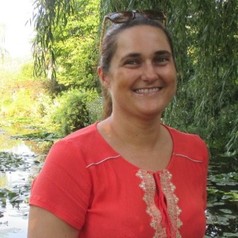
Cynthia Faye Barlow
Postdoctoral Research Fellow, Australian Centre for Housing Research, University of Adelaide
Dr Cynthia Barlow is a researcher at the Australian Centre for Housing Research.
Her research will determine just how cold Australian homes are, who is most at risk and why.
Less ![]()
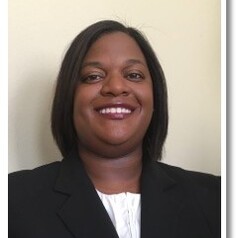
Cyntrice Thomas
Instructional Associate Professor, Sport Management, University of Florida
Cyntrice Thomas is a lecturer in the Department of Sport Management. Prior to coming to UF, she was a professor of Sport Business at Jacksonville University in Jacksonville, FL.
She is a graduate of Florida State University and she holds a Juris Doctor from Tulane University as well. She is a licensed attorney in the District of Columbia and state of Virginia. After practicing law for a few years she pursued her PhD in Kinesiology from the University of Georgia.
Her research interests include:
• Legal aspects of sports
• The application of antitrust law in sports
• Collective bargaining and labor issues in sports
• Social issues in sports
Less ![]()
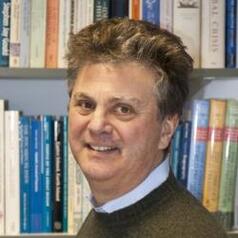
Cyprian Broodbank
Disney Professor of Archaeology, Director, McDonald Institute for Archaeological Research, University of Cambridge
As an undergraduate at Oxford I studied history and received an education in archaeology from Andrew Sherratt. I took an MA in Aegean and Anatolian prehistory at Bristol, and first came to Cambridge in 1987 to start a PhD with John Cherry. I returned briefly to Oxford as a junior research fellow in 1991, and from 1993 spent twenty years at UCL’s Institute of Archaeology, starting as lecturer in Aegean archaeology and ending as professor of Mediterranean archaeology. In 2014 I returned to Cambridge to take up my current position. In 2015 I was elected a fellow of the British Academy. I have held visiting fellowships at All Souls, Oxford, and at institutions in the US. My books have won the Runciman Prize, James R. Wiseman Prize, Wolfson History Prize and Premio Nonino.
I see archaeology as a form of deep history, as the best way of understanding the global experience of humankind over time and why we are where we are today. My interests are therefore broad, comparative and not period-specific. My first grounding was in the Aegean, where I have been centrally involved in a project on the island of Kythera for the last twenty years. The Aegean, not least as an in-between place in spatial, analytical and interpretative terms, taught me the value of theory, material culture study, landscape archaeology, archaeological science, comparison and connectivity. From there my interests led outwards to island archaeology world-wide and to the overall early history of the Mediterranean, itself a space that brings together Europe, Africa and Asia. My most recent projects explore the long-term dynamics of Mediterranean Africa, and the archaeology of politics and urban life through the lens of fieldwork on Iron Age to Roman Kythera. I have a long-term interest in trans-Eurasian cultural processes and in the scope for an archaeology of oceanic connectivity.
Key publications:
Broodbank, C. and G. Lucarini 2019. ‘Mediterranean Africa, 9600-1000 BC: an interpretive synthesis of knowns and unknowns’ Journal of Mediterranean Archaeology 32, 2.
Broodbank, C. 2018. ‘Does island archaeology matter?’, in A. Knodell and T. Leppard (eds.) Regional Approaches to Social Complexity; Studies in Honour of John F. Cherry, 188-206. Sheffield: Equinox.
Broodbank, C. 2013. The Making of the Middle Sea: A History of the Mediterranean from the Beginning to the Threshold of the Classical World. London: Thames and Hudson.
Broodbank, C. 2010. ‘“Ships a-sail from over the rim of the sea”: voyaging, sailing and the making of Mediterranean societies c. 3500-500 BC’, in A. Anderson, J.H. Barrett and K. Boyle (eds.) The Global Origins of Seafaring (McDonald Institute Monographs), 249-64. Cambridge: McDonald Institute for Archaeological Research.
Broodbank, C. and E. Kiriatzi 2007. ‘The first “Minoans” of Kythera re-visited: technology, demography and landscape in the pre-palatial Aegean’, American Journal of Archaeology 111: 241-74.
Broodbank, C. 2007. ‘The pottery’, in C. Renfrew, C. Doumas, L. Marangou and G. Gavalas (eds.), Keros, Dhaskalio Kavos: The Investigations of 1987-88 (McDonald Institute Monographs), 115-237. Cambridge: McDonald Institute for Archaeological Research.
Broodbank, C. 2006. ‘The origins and early development of Mediterranean maritime activity’, Journal of Mediterranean Archaeology 19: 199-230.
Broodbank, C. 2004. ‘Minoanisation’, Proceedings of the Cambridge Philological Society 50: 46-91.
Broodbank, C. 2000. An Island Archaeology of the Early Cyclades. Cambridge: Cambridge University Press.
Broodbank, C. 1989. ‘The longboat and society in the Cyclades in the Keros-Syros culture’, American Journal of Archaeology 93: 319-37.
Less ![]()
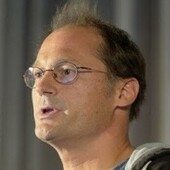
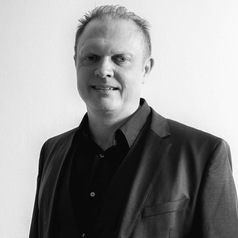
Cyril Tarquinio
Professeur de psychologie clinique, Université de Lorraine
Responsable Equipe EPSAM/APEMAC EA 4360
Directeur Centre Pierre Janet - http://centrepierrejanet.univ-lorraine.fr/
Editor-in-Chief of the European Journal of Trauma and Dissociation (Elsevier) -
Associate-Editor of the European Journal of Sexology and Sexual Health / Revue Européenne de Sexologie et de Santé Sexuelle (Elsevier)
Responsable du Master de Psychologie clinique de l'Université de Lorraine (site de Metz).
Less ![]()
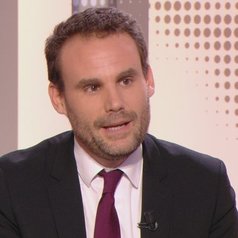
Cyrille Bret
Géopoliticien, Sciences Po
Enarque et normalien, auditeur de l'institut des hautes études de défense nationale (IHEDN). Agrégé de philosophie et docteur, il a enseigné notamment à l'ENS, à l'université de New York, à l'université de Moscou, à Polytechnique et à Sciences-Po. Il dirige le site Eurasia Prospective et collabore régulièrement aux Echos, au Huffington Post, à Telos, à New Eastern Europe en français, en anglais et en russe. Chercheur associé à l'Institut Notre Europe Jacques Delors.
Less ![]()

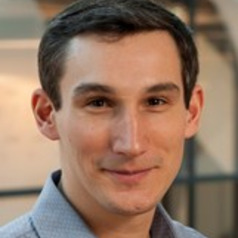
Cyrille François
Ingénieur en génie de l’environnement et docteur en urbanisme, Université Gustave Eiffel
Cyrille François est ingénieur en génie de l’environnement et docteur en urbanisme. Ses travaux de recherche portent sur l’évaluation environnementale des mobilités quotidiennes des individus et des marchandises en mobilisant des modèles de mobilité et de trafic couplés à l’analyse de cycle de vie des systèmes de transports.
Less ![]()
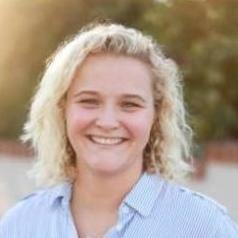
D'amy Steward
Master's Student in Biology, University of Guam
Steward is a master’s student at the UOG Marine Laboratory. Her research focuses on coral reef restoration through sexual propagation of corals and novel settlement substrate for coral larvae. Her project aims to understand how ecological processes and resilience influence coral restoration with sexually propagated corals.
Less ![]()
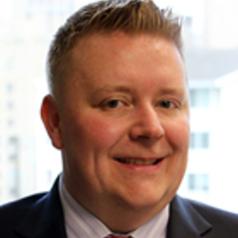
D. Alex Quistberg
Associate Research Professor, Urban Health Collaborative, Drexel University
Alex Quistberg is Associate Research Professor in the Urban Health Collaborative and the Department of Environmental & Occupational Health. He also has a courtesy appointment as Adjunct Professor in the School of Medicine in Universidad de los Andes, Bogota, Colombia.
His current research focuses on the epidemiology of road traffic safety, the built environment, and global and urban health. His work implements methods to measure the built environment objectively, including from geographic information systems (GIS), virtual audits, and artificial intelligence via computer vision and deep learning. He currently leads the Built Environment, Pedestrian Injury, and Deep Learning (BEPIDL) study funded by the Fogarty International Center at NIH and the Urban Health and Climate Change in Informal Settlements in Latin America Study (ESCALA) study funded by the Lacuna Fund. Both these grant are in partnership with the Universidad de los Andes, and the latter also with Universidad del Norte in Barranquilla, Colombia. He is also a co-investigator of the SALURBAL project, funded by Wellcome Trust. His work has primarily focused on improving safety for walking and biking, including the evaluation of policies on road safety outcomes. He is affiliated with The Society for the Advancement of Violence and Injury Research (SAVIR) and the Society for Epidemiologic Research (SER).
Less ![]()
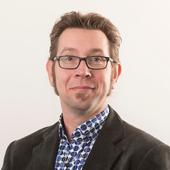
Daan van der Veen
Senior Lecturer in Sleep and Chronobiology in the Faculty of Health and Medical Sciences, University of Surrey
Less ![]()

Dadang I K Mujiono
Faculty member of International Relations Department, Universitas Mulawarman
Dadang is a faculty member of the international relations department of Mulawarman University - Indonesia. Currently, he undertakes his Doctoral degree at the National University of Singapore.
Less ![]()
- Market Data





















